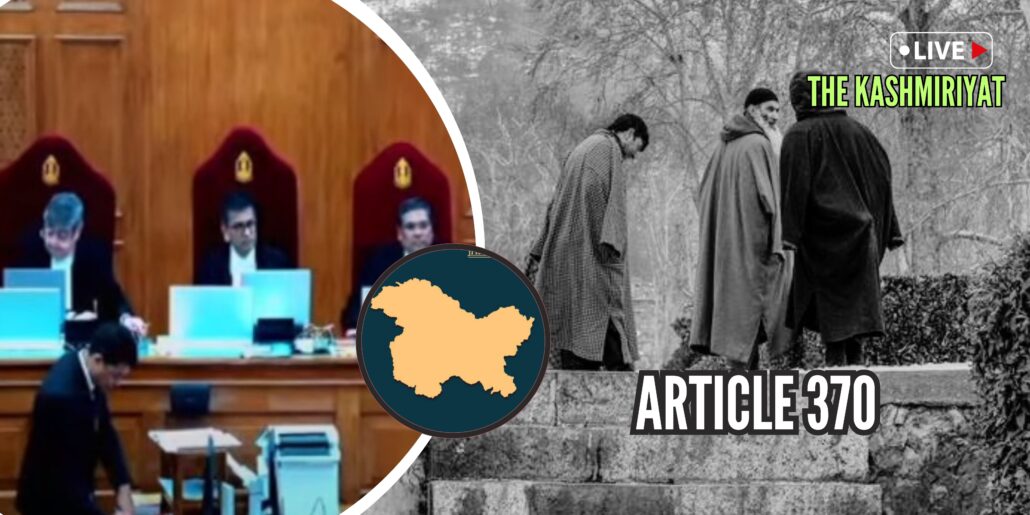
The Supreme Court of India on Tuesday observed that only the Constituent Assembly of Jammu Kashmir had the power to recommend the abrogation of Article 370 which provided special status to the region.
The Chief Justice of India said that A 367 was followed to abrogate Article 370 and since there was an absence of constituent assembly and there was no legislative assembly also when the abrogation happened. In this process there is a dilution, that is the role prescribed by 370(3). You say that role is mere recommendatory but that doesn’t mean it can be overridden.
The Chief Justice also agreed that it was done to aid constitutional integration…”there was undoubtedly a gradual integration, but there are two ways to look at it- If the proviso to 370(3) cannot apply does it mean substantive power under 370 is denuded or lost?” the CJI of India asked.
The Chief Justice made a comment at the end of the proceedings on Day 12 that the significant gap between complete integration as brought on 5 August 2019 and absolute autonomy as it existed on 26 January 1950 had been significantly bridged. “In that regard, there wasn’t a seamless transition from total autonomy to total integration. It is apparent that between 1950 and 2019—a span of 69 years—a significant amount of integration had already occurred, according to the Chief Justice of India.
Therefore what was done in 2019, was it really a logical step forward to achieve that integration?, asked the CJI
The central government, earlier, informed the Supreme Court that making Jammu Kashmir a Union Territory was a temporary measure and its statehood would be restored but Ladakh would remain a Union Territory.
The response of the central government came on a query of the five-judge constitution bench headed by Chief Justice of India (CJI) DY Chandrachud, which asked the Centre to provide a roadmap for restoring statehood in Jammu Kashmir.
The five-bench constitution bench of the Supreme Court was hearing submissions from parties on abrogation of Article 370 in Jammu Kashmir and it was the 12th day of hearing into the matter.
Solicitor General of India Tushar Mehta told the bench that Jammu Kashmir would not be a Union Territory forever and the decision regarding making it a Union Territory was temporary.
Mehta further submitted before the bench that Jammu Kashmir would again be made a state when things resume to normalcy.
The five-judge constitution bench asked the Centre for an official statement indicating the roadmap and time-frame for restoration of the statehood of Jammu Kashmir.
“I have taken instructions and the instructions are that the UT is not a permanent feature and I will make a positive statement day after tomorrow. Ladakh would remain a UT.. but here we are only on Jammu and Kashmir. AG (Attorney General of India) and I will make the statement,” SG Mehta told the bench.




